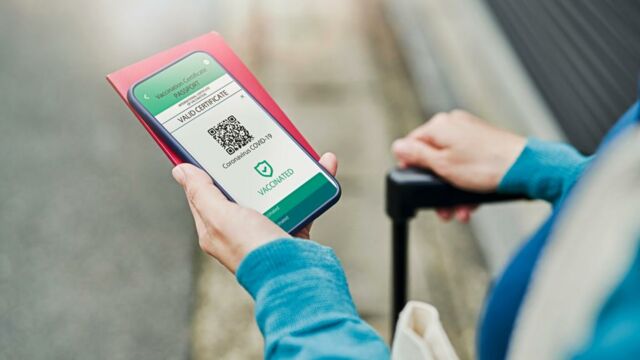Yesterday Prime Minister Boris Johnson held a Downing Street press release to announce some of the most awaited news yet, the third phase of the post-lockdown roadmap.
Discover our latest podcast
As speculated, from the 17th of May, Brits will once again be allowed many freedoms we often took for granted, such as hugging your neighbour, drinking inside a pub and most of all, overseas travel. That’s right, from the 17th, the borders will be reopened for non-essential travel.
But, while international travel will be open from next week, people returning from most countries will still need to quarantine upon their return. Destinations have since been assigned to a traffic light system, with red countries requiring a 14-day quarantine in a designated hotel, amber countries calling for a 10-day self-isolation period and green countries requiring no quarantine upon return. All travel will also need a negative COVID test upon both exit and entry.
British Transport Secretary Grant Shapps announced the green list last Friday, causing a surge in bookings. Airlines have since been scrambling to add new seats and routes to keep up with demand.
Countries on the green list include:
- Portugal
- Israel
- Singapore
- Australia
- New Zealand
- Brunei
- Iceland
- Gibraltar
- Falkland Islands
- Faroe Islands
- South Georgia and the South Sandwich Islands
- St Helena, Tristan de Cunha, Ascension Island
Where do vaccine passports come in?
Vaccine passports will enable travellers to ensure overseas authorities that they are unlikely to bring COVID into foreign countries. Currently, the NHS is making considerable efforts to finalise the vaccine passport app before the 17th. A Transport Agency spokesperson announced:
We are working on a solution to enable residents to prove their COVID-19 status, including vaccination status, to other countries on the outbound leg. We are working on this as a priority and intend to have the solution ready as soon as possible.
This vaccine passport app will provide three types of information:
- If a person has been vaccinated
- If a person has recently tested negative for coronavirus
- If a person has been recently infected with coronavirus and recovered, indicating immunity.
Downing Street has also confirmed that the vaccine passport app will satisfy the entry requirements of many countries, including Greece and Spain, which are both on the amber list.
How will the vaccine passports work?
How the vaccine passports will work has not yet been outlined, but two prototype apps have given insight into how the passports will be used.
The first prototype is Travel Pass, developed by Iata, the International Air Transport Association. The second is the EU's Green Certificate, which has already been used by many EU countries and involves using a QR code.
It is believed that the NHS vaccine passports will be used in a similar way to a boarding pass; however, whether or not a QR code will need to be scanned like the EU Green Certificate is yet to be confirmed.
How to get a vaccine passport
To receive your vaccine passport, all you will need to do is download the NHS COVID appand wait for the update, which includes the vaccine passports. The passport will then have access to your NHS profile and will be able to determine if you’ve had any jabs. Those who have already had their vaccines and given a physical card may also need to use a number provided for the app so it can download your vaccine data.
Mr Shapps has announced that those who don’t have access to apps will be able to ‘request a letter from the NHS proving their vaccination status by calling 119, from 17 May.’
It appears that the COVID vaccination certificates will not be available before the border reopens, and it may take some days to arrive in the mail. Therefore, if you don’t have access to apps, you may want to plan your travel accordingly.















